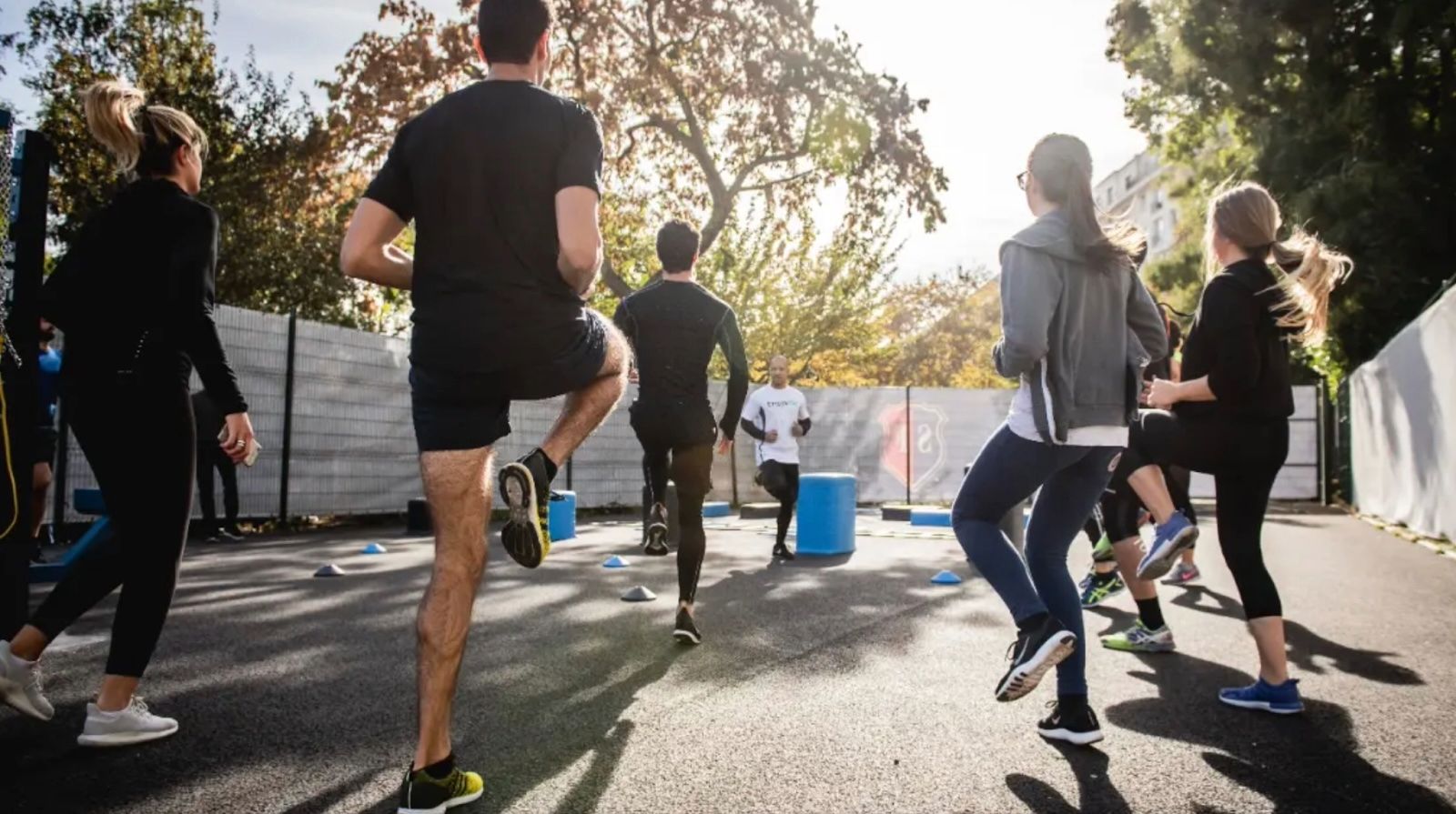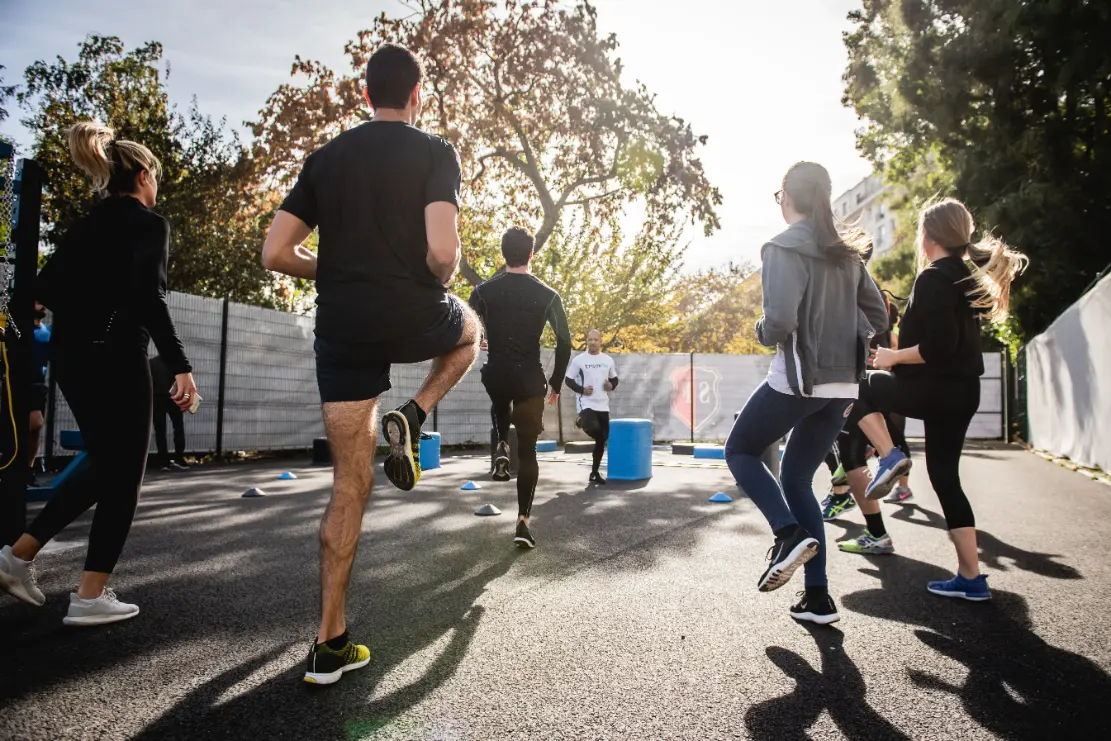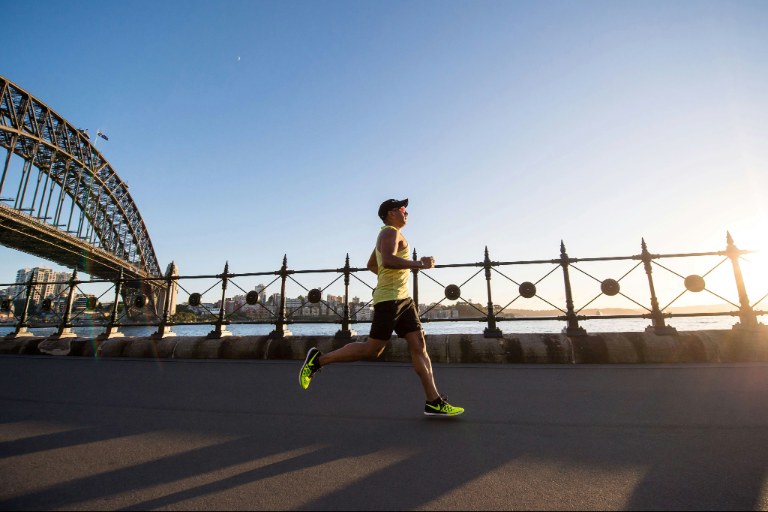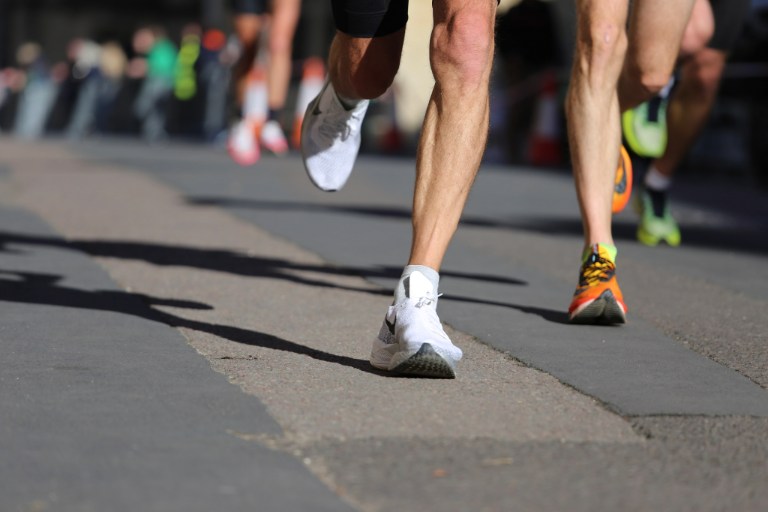How to Run a 15-minute 5K: The Ultimate Guide to Breaking 15 Minutes
Starting your running journey should feel exciting, not overwhelming. Our training plans give you the structure, support, and flexibility you need to go from your first step to running 5k, no matter your starting point.

Running a 5K in 15 minutes is one of the toughest benchmarks in distance running and a target that only advanced athletes and dedicated club runners tend to reach. Achieving it shows you’ve built exceptional speed, endurance, and the discipline to commit to structured training week after week. Hitting 15 minutes isn’t just about fitness – it’s a statement of serious ability and dedication.
The challenge is clear: covering 5 kilometres in 15 minutes takes more than just raw talent. It demands months of carefully balanced training, sharp race execution, and the mental strength to keep pushing when your body is screaming at you to slow down. The good news? With the right plan, a professional approach to preparation, and race-day focus, 15 minutes is an achievable goal for those ready to put in the work.
In this complete guide, you’ll find everything you need to target 15 minutes for 5K:
- Exact target paces and splits so you know what to hit every kilometre.
- Fitness benchmarks to check if you’re ready to take it on.
- A proven training plan with the sessions you need to build speed and endurance.
- Race-day tactics to pace yourself smartly and finish strong.
- Expert tips and real success stories from athletes and coaches who’ve hit 15 minutes themselves.
No more trial and error. Just clear, practical advice to help you run your fastest 5K yet – and enjoy the challenge along the way.
Ready? Let’s go chase that 15!
What Does It Take to Run a 15-minute 5K?

To complete a 5K in 15 minutes, you need to average 4 minutes 49 seconds per mile, or exactly 3 minutes per kilometre. That’s the target - every kilometre has to be run with precision and consistency.
Put simply, you need to cover five consecutive kilometres at 3:00 pace.
Are You Ready for a 15-minute 5K?
Before you set your sights on a 15-minute 5K, it’s important to make sure your current fitness level is close enough. Attempting this goal too early can lead to frustration or injury, so here are some benchmark tests to see if you’re ready to train specifically for 3:00/km pace.
Benchmark Sessions
1. The 5 × 1K Repeats Test
Run 5 × 1K on a track or flat loop with 2–3 minutes of light jogging between efforts.
- Aim to hit 2:58–3:02 per kilometre consistently.
- If you can complete all five feeling controlled (and still have something left), you’re in striking distance of 15-minute fitness.
2. The 3K Time Trial
Another test is to run a hard but even-paced 3K.
- After a full warm-up, aim to cover 3K in around 9:00 minutes or faster.
- If you can do this while still imagining another 2K in the tank, you’re well on track.
These sessions are tough but reliable indicators of whether you’re ready to handle the speed and endurance required for 15 minutes, or whether you need more time building strength before sharpening for race pace.
Check Your Weekly Mileage Base
Elite-level goals need an elite-level foundation. You can’t run 15 minutes off interval training alone – a big aerobic base is essential.
As a guideline:
- You should already be comfortable running 80–100 km (50–62 miles per week) consistently for at least 8–12 weeks.
- If your mileage is lower, focus first on building that aerobic base gradually before layering in the harder workouts.
With a strong mileage platform supported by strides, drills, and steady efforts, you’ll have the durability needed to handle the intensity of training at 3:00/km pace.
Key Training Principles
Running a 15-minute 5K takes more than talent - it requires structured, high-quality training that balances speed, endurance, and recovery. Here are the core principles to focus on:
1. Build a Strong Mileage Base
The foundation of a 15-minute performance is high, consistent mileage. A deep aerobic engine is what allows you to hit 3:00/km pace and keep it.
- Most athletes at this level run 80–100 km (50–62 miles per week) or more.
- Mileage increases should be gradual to avoid injury.
- The majority of runs should be at an easy or steady effort, supporting recovery between hard sessions.

2. Prioritise Interval Training
Intervals are where you sharpen the raw speed needed for 15 minutes. These sessions push you to run at or faster than race pace.
- Examples include 10 × 400m at 3K pace, 6 × 1K at 5K pace, or 5 × 1600m at slightly slower than 5K pace.
- Recovery between reps should allow you to maintain quality across the whole set.
These workouts build speed endurance and help you handle the intensity of racing.

3. Use Threshold & Tempo Runs
Threshold training is critical for lifting your lactate turn point and sustaining high intensity without fading.
- Tempo efforts should sit around 3:10–3:15/km, just slower than 5K race pace.
- Sessions might be 20–30 minutes continuous, or broken into blocks like 3 × 10 minutes with short rests.
These runs train your body to stay efficient under pressure.

4. Commit to the Long Run
Even for a 5K specialist, the long run is non-negotiable. It builds durability, aerobic power, and resilience.
- Aim for 75–90 minutes weekly at a steady, relaxed pace.
- Over time, this develops the strength to finish hard and bounce back quicker from tough workouts.

5. Don’t Overlook Strength & Mobility
A 15-minute 5K pushes your body to its limits - strength and mobility are what keep you efficient and injury-free.
- Prioritise exercises like single-leg squats, plyometrics, core stability, and hip mobility drills.
- Two short sessions per week are enough, even 20 minutes each.
- Staying strong and mobile ensures you can hold form at top speed.

Pacing & Race-Day Strategy
As you step onto the start line, your plan matters just as much as your fitness - and the right pacing strategy can carry you all the way to a 15-minute breakthrough. Here's how to set it up:
1. Warm Up with Purpose
At this level, the warm-up is critical – you need to be sharp from the first stride.
- Easy jog: Begin with 12–15 minutes of relaxed running to raise your core temperature.
- Dynamic drills: Add high knees, skips, lunges, and leg swings to fully activate your muscles.
- Strides: Finish with 4–6 fast strides close to race pace to prime your legs and get your turnover firing.
When you reach the start line, your body should already feel like it’s in gear and ready to handle 3:00/km pace.

2. Control the Opening Kilometre
Going out too aggressively is one of the biggest mistakes at this level.
- Lock into 3:00/km pace (4:49 per mile) immediately – resist the urge to surge.
- The first kilometre should feel smooth, not like a sprint.
Settling early ensures you can sustain the effort later.

3. Stay Composed in the Middle
Kilometres 2–4 are where discipline makes the difference. This is where fatigue starts to creep in, and the ability to stay relaxed is key.
- Keep your posture tall, with quick, efficient strides.
- Focus on rhythm – your breathing and cadence should stay consistent.
If you’re racing in a pack, tuck in and use the group to maintain pace without overexerting.

4. Execute the Final Push
The last kilometre is about converting all your preparation into performance.
- With 800m to go, begin gradually increasing effort.
- At 400m, lift your turnover and commit fully.
- Keep your eyes up, drive your arms, and run through the line - every second matters when chasing 15 minutes.

Mental Tips for Breaking 15

At this level, the physical work is only part of the challenge - your mental game can make or break the result. Running a 15-minute 5K means holding form and focus under extreme discomfort. Here are strategies to help you stay composed and push through.
Break the Race into Sections
Instead of seeing the race as 5K at once, split it into clear checkpoints:
- 1K: Lock into rhythm and stay relaxed.
- 2K: Keep your cadence smooth and trust your training.
- 3K: The grind begins – remind yourself this is where strength counts.
- 4K: Stay tough and hold your pace when it feels hardest.
- 5K: Empty the tank – this is what you’ve trained for.
Thinking in segments makes the effort mentally easier to manage and gives you smaller goals to focus on.
Use Positive Mantras
Short, powerful phrases help block out doubt and keep you engaged when the pace bites. Repeat them in sync with your stride, such as:
- "Stay strong"
- "Smooth and fast"
- "One step closer"
Mantras stop negative thoughts from creeping in and keep you mentally locked in.
Control Your Breathing
Breathing becomes harder at this intensity, so staying mindful helps. Keep your breath steady and rhythmic – for example, in for two steps, out for two. Focusing here keeps you calm, maintains form, and stops tension from building in your shoulders and arms.
Visualise the Outcome
In your final training runs, spend a few minutes picturing race day. See yourself holding pace, staying strong when fatigue builds, and kicking hard for the finish. Imagine crossing the line and the clock reading 15:00. That mental rehearsal can give you a powerful boost when the pain hits on race day.
Nutrition & Gear for a 15-minute 5K

At the 15-minute level, the margins are small – everything from your pre-race meal to your shoe choice can influence the outcome. The aim is to keep things simple, familiar, and tested so nothing gets in the way of hitting your goal pace.
The Night Before
Fuel properly to ensure your glycogen stores are topped up.
- Choose a carb-heavy dinner like rice, pasta, or potatoes, paired with lean protein.
- Keep the meal light and easy to digest – avoid heavy sauces or too much fat.
- Hydrate steadily throughout the day, but don’t overload on fluids right before bed.
Race Morning
Your breakfast should provide energy while sitting comfortably in your stomach.
- Stick to familiar foods: a banana, oats with honey, or toast with jam are all great options.
- Aim to eat 2–3 hours before the race so digestion is complete.
- Sip water or a light electrolyte drink up until the start, but avoid over-drinking.
Gear: Every Detail Matters
At this level, the right gear helps you perform with confidence.
- Shoes: Racing flats or super shoes with carbon plates are the norm, but only wear them if you’ve tested them in training.
- Clothing: Use lightweight kit you’ve worn before to avoid chafing or irritation.
- Conditions: Check the forecast and dress appropriately. Layers can keep you warm for the warm-up, but strip down to your race gear on the line.
The focus should always be on comfort and familiarity - the last thing you want is distractions when you’re running at 3:00/km pace.
Frequently Asked Questions
Yes – running 15 minutes for 5K puts you at an elite level. It’s a time achieved by competitive club athletes, collegiate runners, and aspiring professionals.
Is a 15-minute 5K good?
Yes – running 15 minutes for 5K puts you at an elite level. It’s a time achieved by competitive club athletes, collegiate runners, and aspiring professionals.
How long does it take to train for a 15-minute 5K?
If you’re already running around 15:30–16:00, you may be able to reach 15 minutes within a focused training cycle of 8–12 weeks. For those further away, it can take several seasons of consistent, structured training.
What pace is a 15-minute 5K?
4 minutes 49 seconds per mile, or exactly 3:00 per kilometre.
How much mileage do I need to run 15 minutes for 5K?
Most athletes at this level train on 80–100 km (50–62 miles per week), with a balance of easy runs, intervals, tempos, and long runs. The key is consistency and recovery alongside the high workload.
Do I need to race often to hit 15 minutes?
Regular racing helps – shorter races like 3Ks or 1500m track events sharpen speed, while 5Ks build race-day execution. You don’t need to race every week, but periodic races are important for learning how to pace and handle discomfort.

